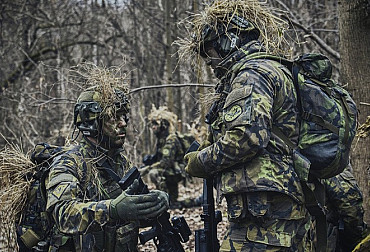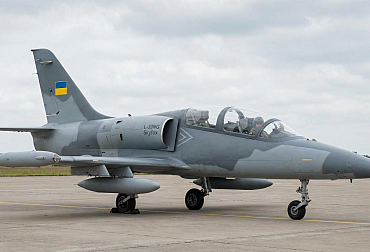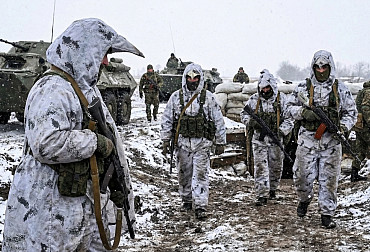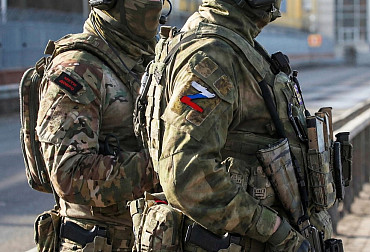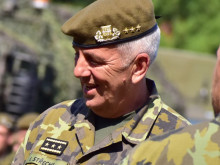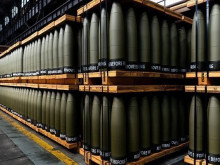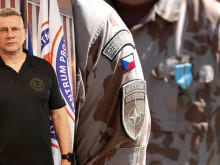Tatra Trucks CEO: The Czech Army is our top priority and key reference customer
The Czech manufacturer of Tatra trucks, military vehicles, and special-purpose vehicles, based in Kopřivnice, needs little introduction. These vehicles, with their proven unique chassis, are well known both at home and abroad. We asked Kristijan Fiket, CEO of Tatra Trucks, about the Czech carmaker's current market position, deliveries of vehicles to the Czech and Slovak armies, and future plans.
.JPG)
Tatra Trucks is currently preparing the largest investment in its history. Which parts of this plan do you consider key to the future of the company?
The most important part of the entire plan, and in fact the reason why we want to implement it, is to increase production capacity. This is a necessary condition for us to be able to fulfill the orders we have and those we could potentially acquire, but which we are currently unable to fulfill in a sufficiently short time — or even accept — due to Tatra's current insufficient production capacity.
How are you trying to maintain the competitiveness of the Tatra brand on a global scale, especially in the defense industry?
We are currently working on a large project at Tatra to unify what we call 'active items,' i.e. parts needed to assemble vehicles. This project will reduce the cost of manufacturing individual vehicles. We want to achieve a lower overall number of these items and a high degree of unification of those that remain, which will lead to greater production efficiency in our operations and in our subsidiary Tatra Metalurgie, as well as among external subcontractors. A smaller number of active items will result in lower machining costs and will also free up capacity for larger production batches. It will also reduce storage requirements and the need to maintain master production data.
Do you see room for expanding production outside the Czech Republic in the future, for example in the form of licenses or joint ventures?
Yes, we are working very actively on these possibilities. We have various offers from different parts of the world for technology transfer or joint ventures. In recent years, we have had several projects of this kind, for example in Saudi Arabia, where a Tatra car assembly plant was built in the last decade. We are preparing to establish a joint venture with a local partner in the United Arab Emirates.
How do you assess the role of Tatra Trucks in the modernization of the Czech Army?
The Czech Army is a priority and key reference customer for Tatra. We are very pleased to be able to supply our vehicles to the Czech Army, as it is a highly valued reference for us because it has high standards and requirements and wants the best vehicles. And we must, of course, adapt to this, which pushes us further and further in our development. Thanks to this, we can offer other customers vehicles and chassis that have a high reputation and whose capabilities are increasingly known and appreciated in the NATO environment and by allied armed forces. Another advantage for the Czech Army is that it has a domestic manufacturer that can supply not only vehicles, but also major components such as chassis, engines, cabs, gearboxes, spare parts, and other logistics and maintenance services. This can be crucial, for example, in international crisis situations, and not many armed forces in Europe or around the world are in such a strategically advantageous position.
Which export markets are currently the most promising for Tatra in the field of military vehicles?
Given the current situation in Eastern Europe, it is understandable that we supply our vehicles to Ukraine, where they serve as logistics vehicles, but also as platforms for various military applications. We also supply vehicles to firefighters and rescue services there. We see Western Europe as promising; the vehicle project for the Belgian army was our first major order in this territory, and we have already delivered dozens of special vehicles to the German army. In comparative tests, our vehicles perform very well compared to established Western European brands and surpass them in a number of parameters, as we know from our partners. However, Tatra does not currently have a strong sales position in Western Europe, as it does in Central Europe, for example. We therefore need to work on this, find experts in sales strategies, marketing, etc., who are familiar with the Western European market and carry weight.
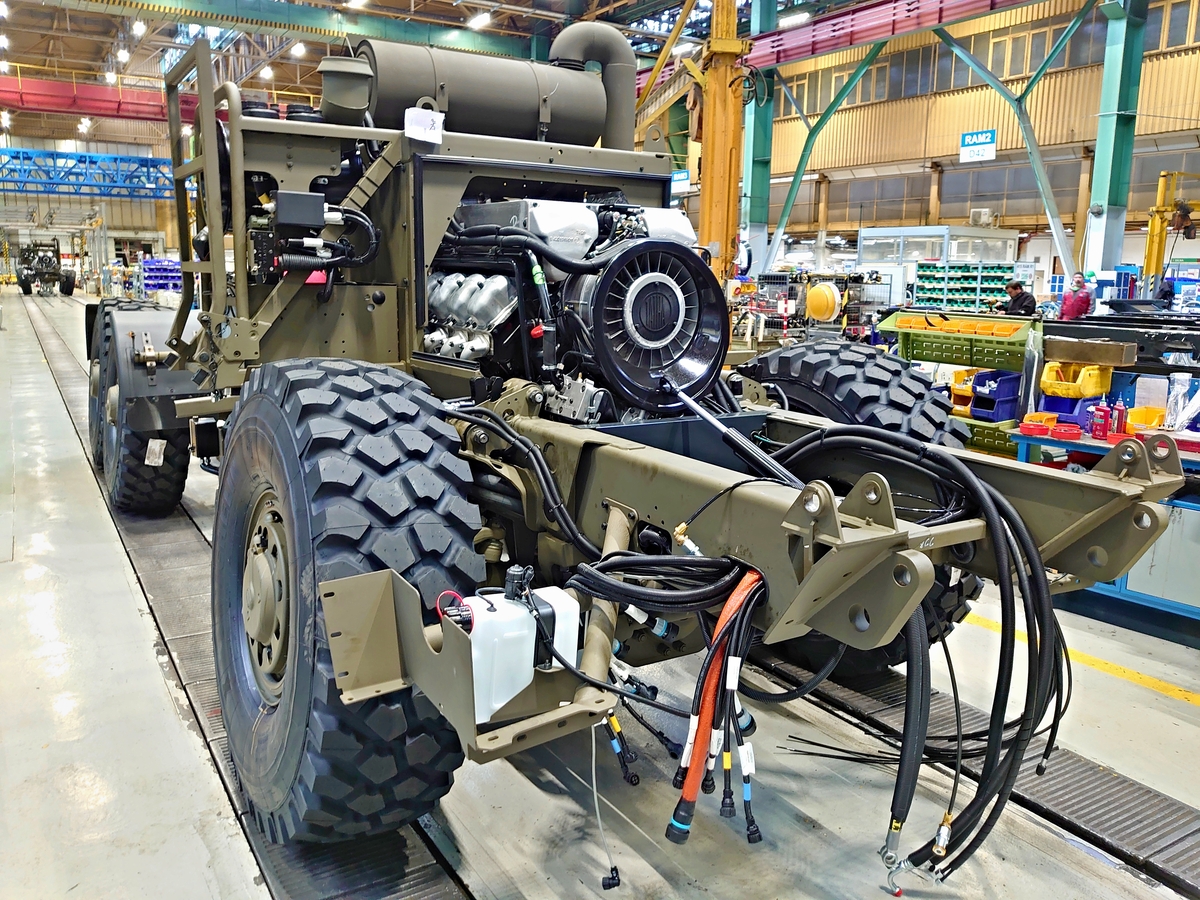
We also see great opportunities and potential in Asia, for example in South Korea and Thailand. We are once again working closely with the Indian state-owned company BEML, we have projects in Indonesia, etc. It is interesting that in Asia, customers are increasingly preferring quality over low-cost solutions, which was not the case before, and we are able to succeed there and have something to offer. In general, we are also making headway in the Middle East and Israel. The demanding requirements of Israeli customers are a great benefit to us and push us forward technologically.
What impact does the recent general meeting, where the minority shareholder refused to support the investment plan and proposed only CZK 100 million for the capital increase, have on Tatra's development?
In this context, I must say that the outcome of the general meeting should not have any negative impact on us. We must focus on our goals; Tatra's mission is to manufacture cars and generate profits for shareholders. In order to achieve this, we must move Tatra forward in terms of production, technology, but also in terms of facilities and the working environment for employees, etc. We demonstrate this to shareholders through specific figures, such as the number of vehicles produced, sales, profits, and other key metrics. As the company's management, we can only hope that shareholders will view these specific results positively. For this year, for example, we already know that production volume is growing, and we are demonstrably taking steps to increase production efficiency and reduce production costs.
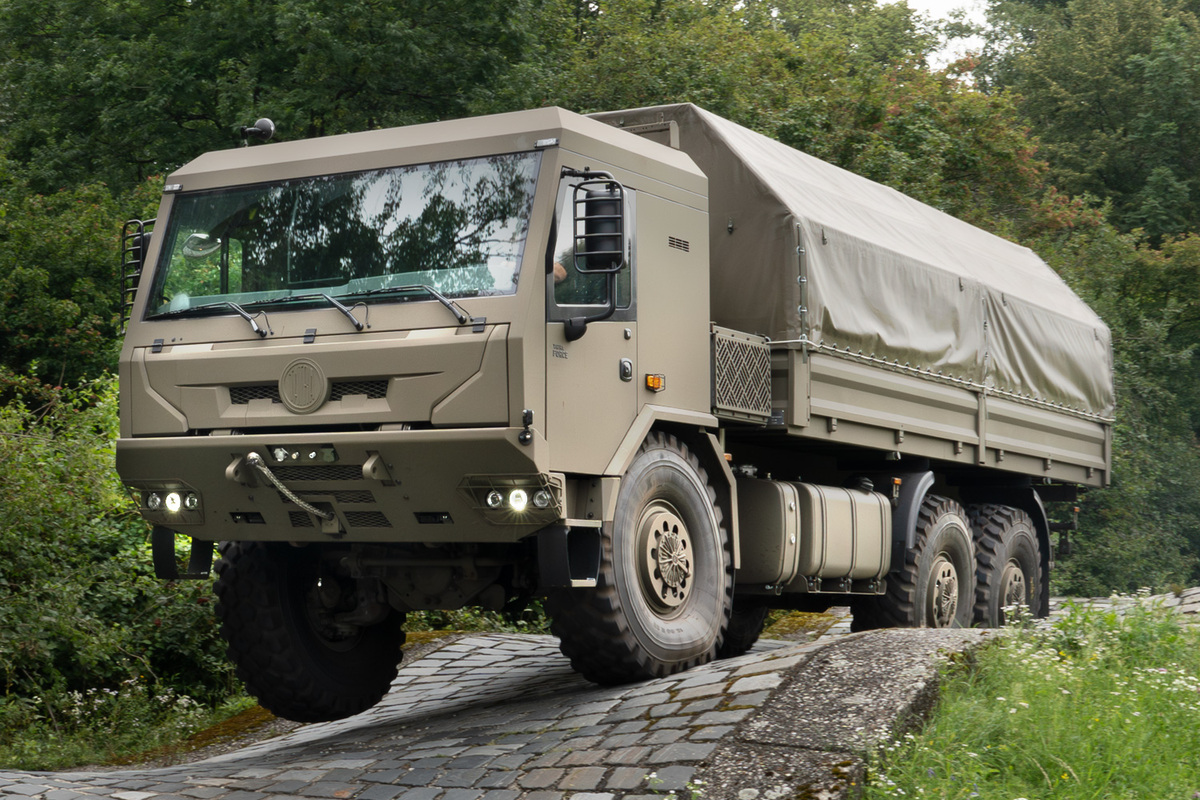
The CSG Group, one of Tatra's shareholders, is heavily focused on the arms industry. How does Tatra benefit from its cooperation with CSG Group companies?
The benefits are significant, as the figures show. Currently, 80 percent of Tatra's total sales come from military contracts, with the civilian sector accounting for 20 percent. Of the military contracts mentioned above, Tatra obtains over 90 percent thanks to contracts with CSG Group companies or cooperation with them. Without cooperation with CSG Group companies, Tatra's production volume would be significantly lower.
How has Tatra been doing in terms of increasing production since you took over?
We are doing well. We want to reach a production volume of 3,000 vehicles per year by 2028. This means that we have to increase our production capacity by 20 to 30 percent every year. Currently, we are at a level that is approximately 20 percent higher than this time last year. But this does not only apply to vehicles, but also to our engines, for example, which are increasingly in demand among military operators. We have already increased production of these by approximately 200 percent compared to last year.
How are deliveries to the Czech and Slovak armies proceeding on the basis of framework agreements concluded with the Czech and Slovak ministries of defense? What role does Tatra Trucks play in these deliveries, and what role does Tatra Defence Systems (TDS), which is a party to the agreement, play?
Deliveries are proceeding in accordance with the contract schedule and the orders of both armies. As for the role of Tatra Trucks and Tatra Defence Systems, it should be emphasized that Tatra Trucks acts as a subcontractor in deliveries for the Czech and Slovak armies. I have seen speculation in the media that TDS is some kind of intermediary for deliveries of Tatra vehicles to the Czech Armed Forces. This is not the case. Tatra Trucks is not a manufacturer of weapons or military equipment; it is a supplier of mobility, i.e., vehicles and chassis. The installation of weapon systems and military equipment into Tatra vehicles or chassis is carried out by specialized companies. Tatra Trucks has never done this and does not do this.
In the case of the aforementioned framework agreement for the Czech Armed Forces, the supplier is Tatra Defense Systems, which is part of CSG. It purchases chassis or vehicles from our car manufacturer Tatra Trucks, which it equips with armored cabins, for example, which Tatra Trucks does not manufacture at all, as well as special military equipment, hardware and software, and weapon systems, for which it also has certificates, permits, and documentation, as well as its own experts, and thus supplies vehicles prepared according to the army's requirements. Tatra Trucks, as a car manufacturer, does not have any of these capabilities and therefore could not even apply for a tender for military vehicles for the army. The cooperation between Tatra Trucks and TDS on deliveries under the framework agreement for the Czech Armed Forces is therefore completely transparent and follows standard processes.
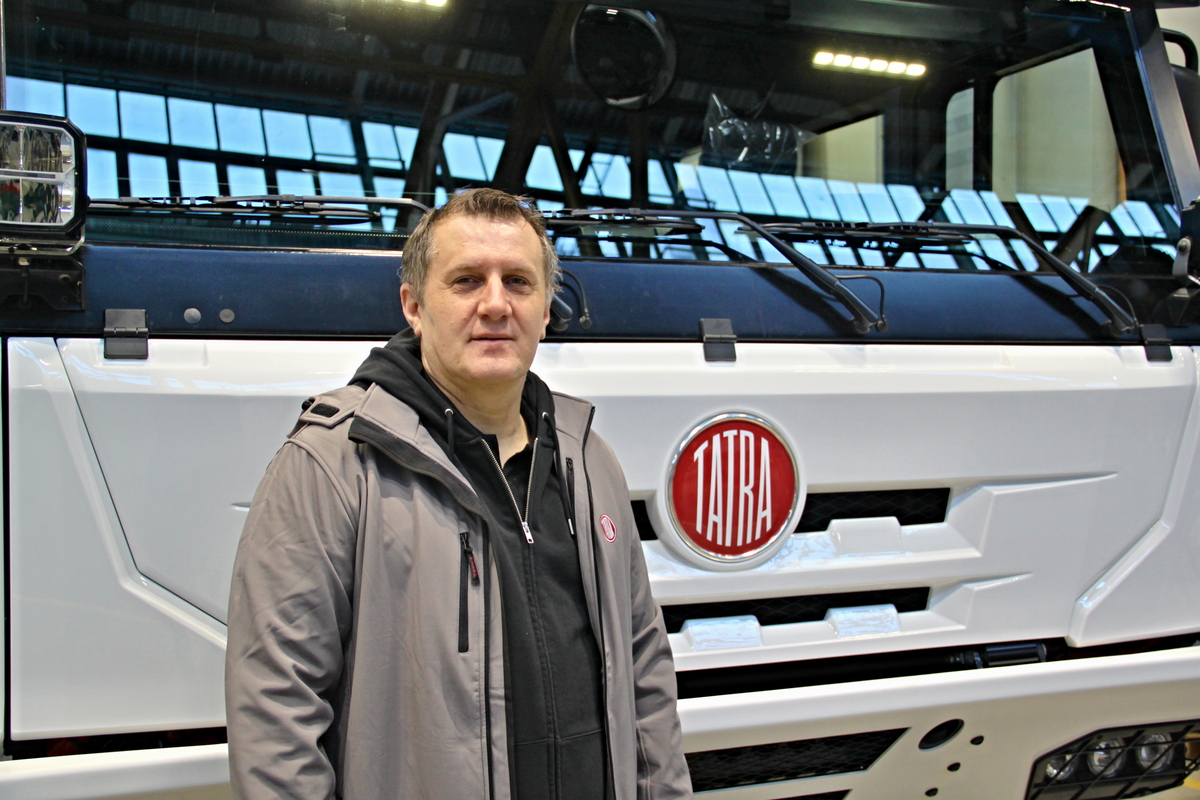
Is there a possibility that other NATO member states will also join this framework agreement system for Tatra vehicles?
Yes, that possibility certainly exists. For example, work is underway to get the Croatian Army to join the project. Official negotiations between its representatives and the Czech Ministry of Defense are already underway. Of course, we would be delighted if other NATO members joined as well.
Your CV shows that before starting your career as an industrial manager, you served in the Croatian special forces and are a recipient of Croatia's highest military decoration. What did you receive this award for, and how do you remember your military career?
Well, you know, I actually received the award because of youthful recklessness (laughs). At the beginning of the conflict following the breakup of the former Yugoslavia, I was deeply affected by the aggression of Serbian troops on Croatian territory, but in 1991 I was too young to get actively involved. In 1994, I graduated from the police academy and, together with my classmates, I immediately joined the special forces at the age of 18. They already had seasoned veterans who had experienced real combat, and we were the first generation of trained specialists. At the time, the press wrote about us in superlatives as trained specialists for the 21st century, which had not yet arrived (laughs). Of course, based on this unwanted PR, the old veterans laughed at us, made fun of us, and didn't take us seriously. So I tried to show everyone what I was made of, throwing myself into everything headfirst and always first. I succeeded several times in combat situations where the chances of success seemed slim. In fact, I was incredibly lucky to survive, as many of my colleagues unfortunately did not. My friends then called me "Run, Forrest, Run!" after the famous movie. So I actually received a medal for my youthful recklessness and zeal.











